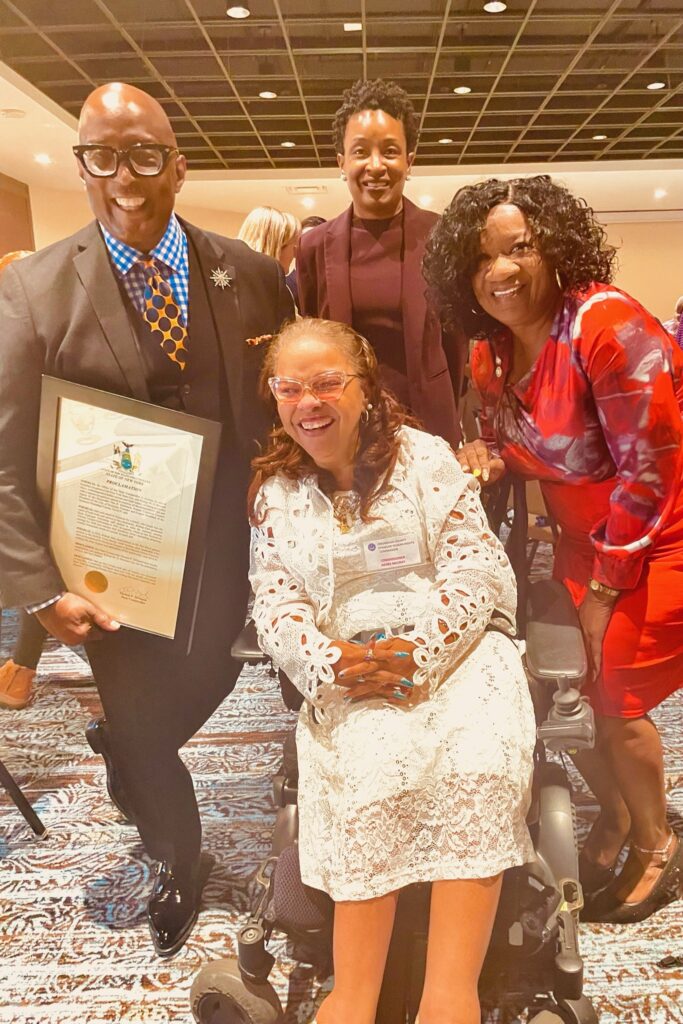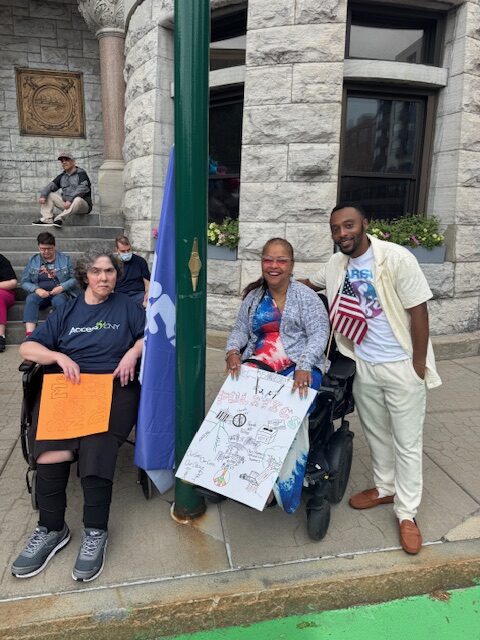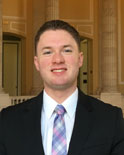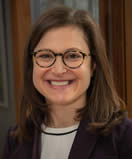Commissioners
Spotlight: Congratulations Human Rights Chairman H. Bernard Alex
Onondaga County/Syracuse Human Rights Commission Chair Bishop H. Bernard Alex was the 2025 inaugural recipient of the Van B. Robinson award by New York State Comptroller Thomas P. DiNapoli

Celebrating the 35th anniversary of the American with Disabilities Act

Human Rights Commission
In 2024 the Onondaga County Legislature amended the local law that established the Human Rights Commission to change the number of Commissioners from 24 to 13. Ten of the Commissioners are confirmed by vote of the Onondaga County Legislature to serve staggered three-year terms. Seven (7) members are appointed by the County Executive and are subject to Legislature approval. Three (3) Commissioners are appointed by Legislator recommendation and three (3) members are appointed by the Mayor of Syracuse.
Background: On June 7, 2016 the appointment of the 12 new Human Rights Commissioners by the County Executive was confirmed by the Onondaga County Legislature. An additional 4 new Commissioners appointed by the Legislature were confirmed on July 5, 2016. An additional 6 new Commissioners were appointed by the Mayor of the City of Syracuse and began to participate actively in Commission meetings and activities in February 2017.
Commissioners of Human Rights
The Human Rights Commission was founded in 1963 as an entity of the City of Syracuse. It later became a joint City of Syracuse – Onondaga County entity. In 1997 the Onondaga County/Syracuse Human Rights Commission became an entity that was housed in and supported by Onondaga County. The City retained the ability to appoint 6 members of the Commission.
The County Legislature defunded the Commission’s staff in 2010, but 2 key functions of the old Commission office were retained, and 2 related staff were transferred into other County Departments. The Commission as a body did not meet for 5 years. Then in February 2015 the Onondaga County Legislature passed legislation to renew and strengthen the Human Rights Commission, to charge the Commission staff with providing support to the new Justice Center Oversight Committee (JCOC) in addition to their regular Commission duties, and to restore a budget line for a Commission office and an Executive Director.
View 2015 Local Laws D Establishing the JCOC & E Renewing the Human Rights Commission
The Human Rights office was re-opened in August 2015 with 2 staff – an Executive Director and one Human Rights Specialist. After the appointment of an initial group of 16 new Commissioners were confirmed by the County Legislature, the first meeting of the new Human Rights Commission was held on Wednesday Sept. 14, 2016.

Executive Director of Human Rights for Onondaga County
Montanette Rocker
Office Objectives:
- Provide diversity training to all county employees and to non-profit human services agencies
- Provide presentations about human and civil rights, diversity and discrimination for community groups and organizations
- Respond to requests for information, referral and other forms of assistance from community members (from 9am to 4pm Monday through Friday as staff are available)
- Provide administrative support to the members of the Human Rights Commission and Justice Center Oversight Committee
- Identify and investigate serious complaints relating to the Onondga County Justice Center for consideration by the Jail Oversight Committee
- Coordinate Onondaga County’s Title VI, ADA & LEP Plan in collaboration with Administrators in each County Department
- Utilize processes of conference, conciliation, persuasion and education to address or resolve
situations of intergroup conflict and alleged discrimination - Produce pamphlets and factsheets to provide the public with information about human and civil rights, and about the Commission and its work









